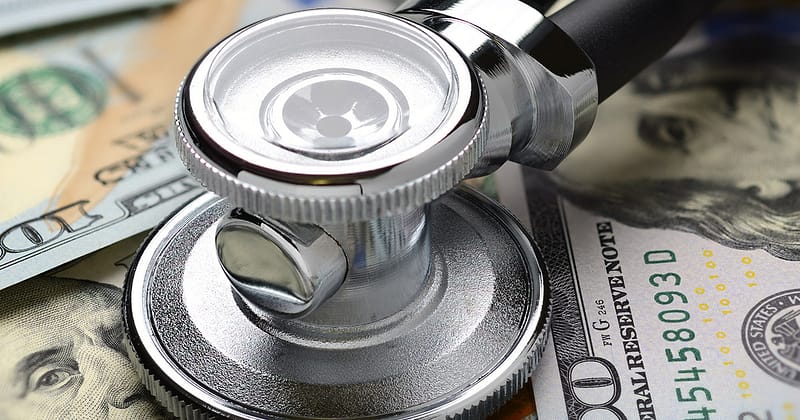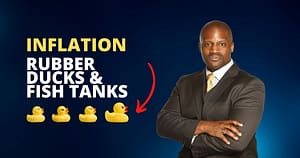Your Money is Like Your Health
Anyone who has known me for very long knows that I’m health conscious. What started me on this track wasn’t a heart attack or another health ailment. No, my physician didn’t have to warn me to take better care of myself. It was a conscious decision.
Like many athletes, I could have let myself go after playing college football. I could have got as fat a butterball turkey, so obese that people would never believe how close I was to going pro. But, I never stopped working out and monitoring my diet after my athletic career ended.
I’m no Hershel Walker or Shannon Sharp, that I doubt ever missed a workout or ate anything fattening. I’ll occasionally miss a week at the gym, and have a weakness for homemade sweets. But, it never fails! If I don’t workout for long enough, or eat too much of my mother’s peach cobbler or my aunt’s pies and cakes, I feel it. The first thing that happens is my body starts to tell me, “Eric, you need to ride your bike, jog, go to the gym or do something.” And if I ignore the warning for long enough, I start to see what my body was saying politely.
I’ve never let it get beyond this juncture, the point of abuse. Normally when I feel it, regardless as to what’s going on in business or at home with the family, I make exercise the priority because I don’t take my health for granted.
From the title maybe you can see where this is headed. Are you treating your money as if it will always be there regardless of how badly you abuse it? Even if you don’t feel it or can’t see it, chances are you could be abusing your money and not even be aware of it.
What I’m saying now is what I’ve repeated for years. Although everyone knows that smoking is unhealthy even in moderation, sadly many don’t recognize the same holds true with conventional financial advice. Taking a little conventional financial advice, like dollar cost averaging or conventional risk management practices, is worse than smoking a pack of cigarettes a day. Relying on the tried, proven-to-fail and only-work-for-a-minority conventional financial advice is wreaking havoc on the public’s and government’s economic health.
I drew this analogy after taking a relative to the doctor. I listened to the physician rattle off a list of things in which the patient could no longer indulge–like smoking, drinking and eating green leafy vegetables. Smoking and drinking, I understood. Greens though! They are healthy. I needed an explanation. Why couldn’t a person eat turnips, collards or mustards? After asking, the doctor explained that the patient was on a blood thinner. Green leafy vegetables versus thinning the blood, actually thickened it, increasing the risk of blood clots. Wow!
At that moment I realized that many people treat their money like they do their health. The major difference is that most financially sick people were told by Wall Street quacks to do what would inevitably kill them.
With all of the losses that society is experiencing in their portfolios, home values, etc such a statement isn’t even harsh today; it’s just reality. The problem is that many recognize something is wrong and realize that they can’t take having money for granted but haven’t identified the root cause of the trouble.
Being kept in the dark has left the public susceptible to repeating the same mistakes with their money. All one has to do is look at the bond markets. How long do you think people will be able to tolerate getting a near zero percent return on money loaned to the US government, and many international businesses? What do you think is going to happen when interest rates eventually rise to what people need to pay their bills while not depleting their principle? The selling value of the bonds is going to plummet. Trillions in “value” will be erased in weeks, if not overnight.
It’s just a matter of time before this debt bubble burst, and more losses are incurred. For many without the time to recover, the damage will be irreversible. Hopefully, you’ll heed this warning and do what is in your own interest. Despite what your advisor recommends or the government for that matter, it is time to start treating your money like you are not taking it for granted, that it will always be there if interest rate rises, the bank fails or the stock market crashes or whatever. Contact me for advice that works. Purchase my books at conduitadvisors.com. Sign up for my informative webinars. It’s time to start making economically sound decisions with your money and treating it as if you want it to live a very long and productive life.





